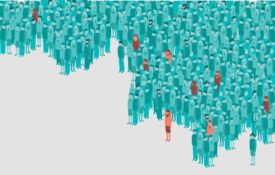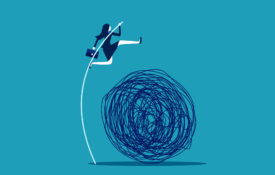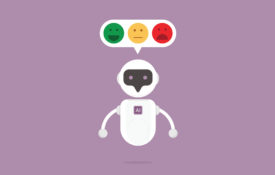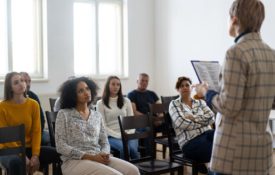-
Disinformation Is the Real Threat to Democracy and Public Health
Disinformation is the coin of the modern realm. Vaccine denial, climate denial, election denial and war-crime denial have joined the grotesque denial of the Holocaust in the ranks of dishonesties now regularly foisted on the public. We can, however, do something about this crisis of the information age. In January the World Economic Forum (WEF) ranked the spread of misinformation among the greatest threats to humanity in its Global Risks Report. With more than four billion people voting in the upcoming 2024 elections (roughly half the world’s population), the report makes clear that now is the time to prepare the world against disinformation and those who peddle it. ...
-

People Are Inclined to Hide a Contagious Illness While Around Others, Research Shows
A startling number of people conceal an infectious illness to avoid missing work, travel, or social events. Novel approaches beyond relying on individual good will may be needed to mitigate these harmful concealment behaviors.
-

Information Avoidance in the Modern Age
Podast: Özge G. Fischer-Baum and Jeremy Foust (Kent State University) dive into information avoidance and the factors that impact it, as well as how social media has affected the ways we take in information.
-

AI’s Limits, Potential for Psychological Research and Practice
In the latest Science for Society webinar, psychologists came together to discuss the past and current applications of artificial intelligence from a scientific perspective. A recording of the webinar is also available for registrants and APS members.
-

Does Psychology Need More Effective Suspicion Probes?
Suspicion probes are meant to inform researchers about how participants’ beliefs may have influenced the outcome of a study, but it remains unclear what these unverified probes are really measuring or how they are currently being used.
-
Can We Keep Time?
It can be tough to face our own mortality. Keeping diaries, posting to social media, and taking photos are all tools that can help to minimize the discomfort that comes with realizing we have limited time on Earth. But how exactly does documenting our lives impact how we live and remember them? In this episode, diarist and author Sarah Manguso reflects on the benefits and limitations of keeping track of time, and Charan Ranganath, a professor of psychology and researcher at the UC Davis Center for Neuroscience, discusses what research reveals about how memories work and how we can better keep time.

